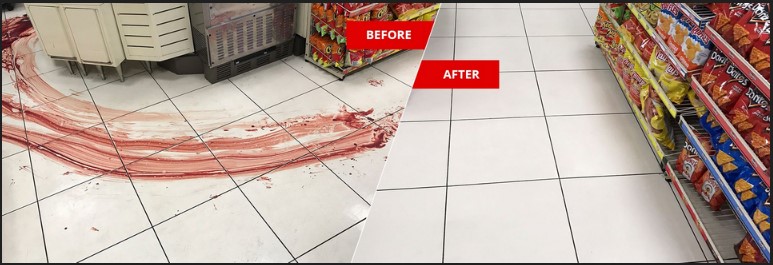
Viruses and bacteria accompany us every everywhere, but during seasonal diseases, natural disasters or such unfortunate events as crimes or suicides, it is important to get rid of these bacteria as soon as possible and reduce the risk of their spread on surfaces.
The current pandemic has reminded us of the importance of keeping surfaces clean and hygienic to avoid the spread of pathogenic microbes. At the same time, apart from various contagious diseases there are plenty of other dangerous situations which require urgent disinfection. In order to deal with these “extreme” situations, we usually apply to crime scene cleaners or suicide scene cleaners.
Rules for disinfection at home
Regular cleaning of residential premises prevents the spread of a large number of viruses and bacteria that can cause diseases, whereas crime scene cleaners carry out really thorough disinfection because the bacteria these professionals work with bacteria which are a lot more dangerous for people than regular viruses.
Disinfection of premises from viruses at home can be done in several ways:
• Microorganisms on the surface of objects are affected by various physical factors – treatment with hot steam, boiling, as well as ultraviolet irradiation and ionization.
• The removal of viruses and bacteria in this case occurs when they are washed off any surfaces with cleaning agents.
• Pathogenic microorganisms are eliminated using various disinfectants or cleaning agents and their solutions.
Crime scene cleaners often carry out antiviral treatment using several of the following methods at once: all surfaces are washed with disinfectants, followed by rinsing, furniture upholstery is washed at high temperatures, the rooms are treated with dry fog to remove the putrid odor.
Safety regulations
Cleaning products which are used for disinfection by crime scene cleaners are considered not only effective against viruses, bacteria and fungi, but they can be dangerous for people who use them. That’s why disinfection work using cleaning products containing sodium hypochlorite and their solutions are carried out with strict observance of personal safety measures.
Personal protective equipment when working with disinfectants include:
• rubber gloves
• protective goggles
• respirators.
Residues should be necessarily washed off with clean water.
In addition to personal protection, crime scene cleaners should take precautions during decontamination of premises.
These precautions include:
• compliance with the instructions on the product packaging,
• no people, plants or pets should be present in the premises,
• it’s necessary to washing off of the remains of disinfectants after processing of surfaces,
• room must be ventilated until the specific smell disappears.
Impact of disinfectants on the environment
Sodium hypochlorite solutions are actively used all over the world for water disinfection and disinfection in medicine, industry and at home. The percentage of use of this ingredient in the total volume of disinfectants is more than 90%, but in order to achieve a balance between result and safety, it is necessary to strictly monitor the concentration of the solution used.
Sodium hypochlorite is an unstable compound that, when released into the environment, decomposes into water and oxygen. When used according to the instructions, sodium hypochlorite is not dangerous.
All in all, disinfection is very important, however, it should be done by the specialists following safety measures and strict regulations for its use.